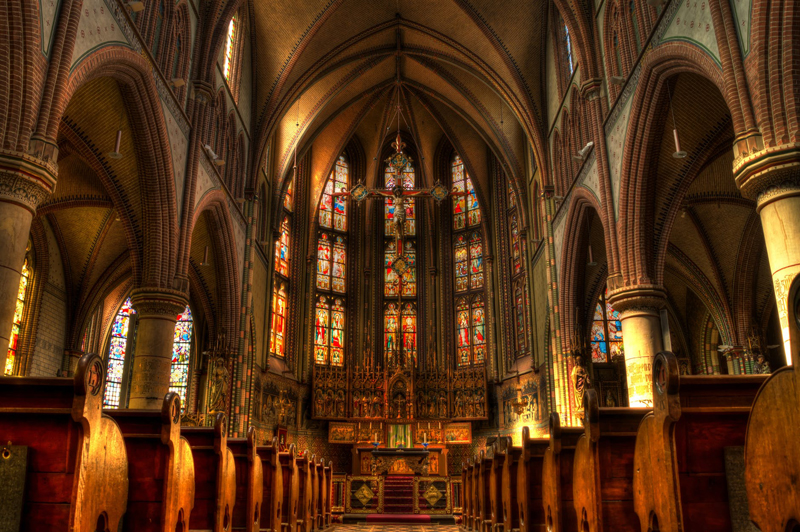Eucharist - The Real Presence

It seems fitting to take a closer look at this most Holy Sacrament that is central to our faith. I've read in a couple articles that a significant number of Catholics do not believe in the real presence in the Eucharist, and that makes a closer examination even timelier and a good place to begin this series of articles.
First lets direct our attention to what the Catechism of the Catholic Church says about the real presence:
In the most blessed sacrament of the Eucharist "the body and blood, together with the soul and divinity, of our Lord Jesus Christ and, therefore, the whole Christ is truly, really, and substantially contained." (1374)It is by the conversion of the bread and wine into Christ's body and blood that Christ becomes present in the sacrament. (1375)
In article 1376, the Council of Trent is quoted further summarizing our Catholic faith and belief in the true presence of Christ in the Eucharist. Because Christ himself said that it was truly his body and blood, we believe that the bread and wine are transformed - through consecration in a change that is called transubstantiation - into the body and blood of Jesus Christ. The Eucharist presence of Christ remains in that bread and wine from that point on. When the remaining consecrated hosts are placed in the tabernacle, Christ is present there. That is what the lit candle above or beside the tabernacle signifies. That Christ is truly present.
The bread and wine aren't just symbols for Christ's body and blood. From the moment of consecration they truly become his body and blood. This is the greatest gift God has given his Church. Jesus. Not only did Jesus die for our sins, he gave us his body and blood for our spiritual nourishment.
Let's now examine what the Bible says about the real presence:
"I am the bread of life. Your ancestors ate the manna in the desert, but they died; this is the bread that comes down from heaven so that one may eat it and not die. I am the living bread that came down from heaven; whoever eats this bread will live forever; and the bread that I will give is my flesh for the life of the world." (John 6:48-51)Jesus said to them, "Amen, amen, I say to you, unless you eat the flesh of the Son of Man and drink his blood, you do not have life within you. Whoever eats my flesh and drinks my blood has eternal life, and I will raise him up on the last day. For my flesh is true food, and my blood is true drink." (John 6:53-56)
Then he took the bread, said the blessing, broke it, and gave it to them, saying, "This is my body, which will be given for you; do this in memory of me." And likewise the cup after they had eaten, saying, "This cup is the new covenant in my blood, which will be shed for you." (Luke 22:19-20)
See also Matthew 26: 26-28, Mark 14:22-24, and 1 Corinthians 11:23-26.
Jesus himself commanded us to take his body and eat it, take his blood and drink it. He asked that we do this in memory of him. In doing so he gave us this most precious Holy Eucharist: this most Holy Sacrament.
Eucharist – Early Christians and the Real Presence
Resources
How to Get the Most Out of the Eucharist -- Buy on Amazon
Peace in Christ,
© Melissa Knoblett-Aman
You Should Also Read:
The Most Holy Body and Blood of Christ
Eucharist – Early Christians and the Real Presence

Related Articles
Editor's Picks Articles
Top Ten Articles
Previous Features
Site Map
Content copyright © 2023 by Melissa Knoblett-Aman. All rights reserved.
This content was written by Melissa Knoblett-Aman. If you wish to use this content in any manner, you need written permission. Contact Melissa Knoblett-Aman for details.


